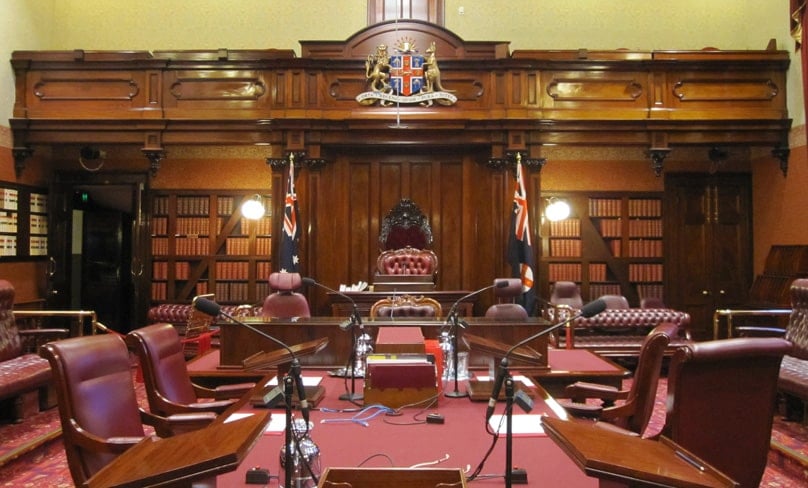
With a Labor minority government in NSW, our eyes now turn to the NSW Legislative Council to make some predictions about what the next four years will look like.
With counting largely finished, we can reasonably predict what the council’s composition will be. Of the 42 members, there will be 15 Labor members, 15 Coalition members, four from the Greens, three from One Nation, two from the Shooters, Fishers and Farmers and one each from the Animal Justice Party, the Legalise Cannabis Party and the Liberal Democrats.
With neither the government nor the opposition having equal numbers in the upper house and the government having to appoint a speaker who does not usually vote, the makeup of the crossbench is important.
The Greens, the Animal Justice Party and the Legalise Cannabis Party are overtly left-leaning, likely to vote in favour of socially progressive causes. Collectively they have six members in the upper house.
Conversely, One Nation, the Shooters and the Liberal Democrats are the more socially conservative of the crossbench, and they too have six members amongst them.
With Premier Chris Minns announcing that he will not work with Mark Latham and presumably also Tania Mihailuk who previously was in Minns’ shadow cabinet before resigning to sit as an independent and then joining One Nation, the government will need the support of all the social progressives and at least one of the Shooters or the Liberal Democrats to get contentious legislation through.
It’s not a perfect science, of course and much depends on the issue. Recall from the euthanasia and abortion debates in the previous parliamentary term that there were some strong advocates for life within Labor (none more steadfast than Greg Donnelly) while the Nationals voted almost unanimously in favour of killing the vulnerable unborn and elderly.
It’s not clear whether conscience votes will be afforded on matters such as the ban on so-called conversion therapy or amendments to anti-discrimination laws, but if there are, results will once again be tight.
Probably the biggest change to the Legislative Council composition is that, for the first time in my lifetime, there will not be an explicitly Christian party in the NSW Legislative Council.
In the 2019 NSW state election, the Reverend Fred Nile’s Christian Democratic Party went from holding two upper house seats to one, with Paul Green not being re-elected. Reverend Nile retired at the 2023 election and his wife, Silvana, failed to be elected in his place.
The other key ‘hope’ for an explicitly Christian voice in Parliament was Lyle Shelton, former managing director of the Australian Christian Lobby and now leader of the Family First party but he did not receive enough votes to earn an upper house seat.
The loss of a specifically Christian party and an overtly Christian voice in the NSW upper house is not only sad for NSW politics; it also reveals something about how Christians are voting. While we know both religious affiliation and religious are declining in this country, the numbers have not changed so dramatically since the 2011 election when the Christian Democratic Party held two seats to now, when there are none.
There are still enough Christians of voting age in NSW who attend a church service at least weekly to provide enough votes for at least one and probably two upper house members. What this tells us is that most church-attending Christians do not consider voting for an expressly Christian voice in parliament to be important.
There are many reasons for this: a general inclination to vote for major parties (although this would not explain the growing size of the crossbench), the presence of faithful Christians and others of faith in the two major parties, the perception that other minor parties – although not expressly Christian – better represent “Christian” values, a lack of the awareness of who the Christian candidates are on the ticket (Silvana Nile ran in her own name and not under the “Christian Democratic Party” header), the prioritisation of other issues such as the economy or the environment, the thought that it is unnecessary to vote for Christian candidates or even that voting for someone based on their faith is unhelpful.
Whatever the reason, this is a significant change that will not be reversed as church affiliation continues to decline. In just 12 years, we have gone from the Christian Democratic Party holding the balance of power to having no power at all. In just five years, we have gone from having two dedicated Christian members to none.
That’s not to say there aren’t committed Christians in other parties, but Christianity is not the banner under which they ran.
I don’t know what this means for the political landscape, but I know what it means for you and I. With no dedicated Christian voice in parliament, we must increase our commitment to speak the Christian voice to parliamentary processes and to support and encourage those members standing up for Christian values.
